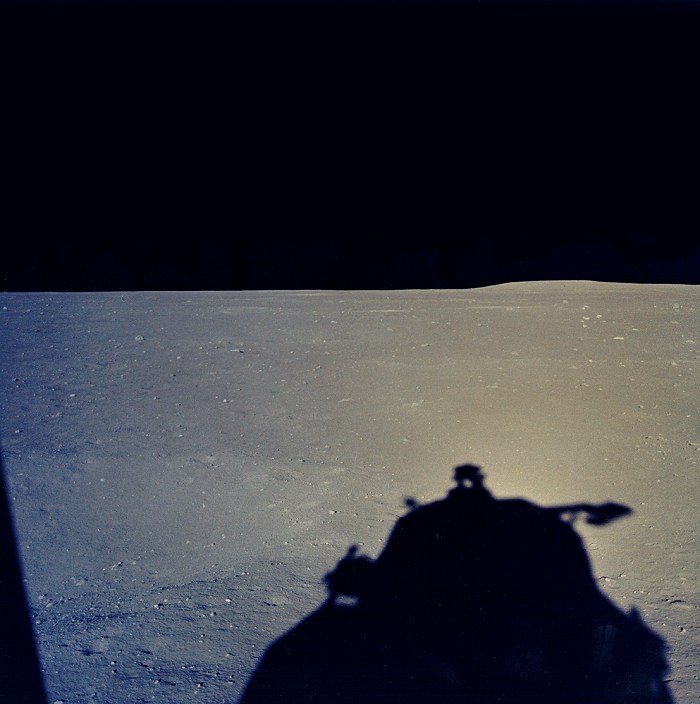Much to my surprise, I remember the Apollo 11 landing, and the first moon walk. My wife—who is 22 months younger than me—doesn’t. She was three years old at the time; I was not far off five, and somewhere in that gap lies that developmental point where most infants start to remember significant events.
I live in the UK. The precise moment when “Eagle” touched down, 20:17 UTC, would have been around 9pm; rather late for a toddler to be up, but I think I remember my parents bringing me into the living room to watch something important on the new, 625-line black-and-white PAL TV set. That memory is vague—I’ve seen footage of the descent so many times since that I can’t rely on my own experience.
What I definitely remember is my mother waking me up really early—it was still dark—and bringing me downstairs. It would have been around 2am the next morning. I was sleepy, and couldn’t make much sense of what I was seeing on the screen; the upside-down image (at first), the hazy, ghosting figure in the big suit clinging to a ladder, very slowly climbing down it, the crackling static on the sound. I knew something important was happening, because my parents had woken me up and told me to remember it. But after about fifteen minutes, not much seemed to be happening: and I was very sleepy. Back to bed.
The next day, and the day after that, the news sank in; and so did the meaning. Newspapers bore huge headlines, as large as for a royal coronation or wedding, or the assassination of a foreign president: and the pictures that accompanied the headlines made it clear that something epochal had happened, the significance of which—I was four. (Nearly five.) Significance was to come later, gradually sinking in. I was, of course, space-mad for six months, like all my peers. I knew that when I grew up I was going to be an astronaut! There were collectors cards, and colouring books, and all the ephemera of childhood overrun by the Apollo brand. I memorized all the facts and figures I could find, understanding very little. I watched the TV news in 1970 as Apollo 13 ran into trouble, with a five-year-old’s understanding; I watched the final take-off of the Apollo 17 LM ascent stage on that same black and which TV in 1972 as an eight-year-old, still unable to quite comprehend that the program was over. Then it began to sink in—that I probably wasn’t going to grow up to be an astronaut, after all.
They’d taken the moon away from me.
Charles Stross is a British science fiction, fantasy, and horror author. His work has earned over a dozen award nominations, and his most recent novel, Saturn’s Children, is up for this year’s Best Novel Hugo.










